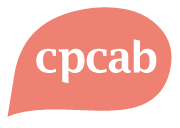FAMILY THERAPY
Family therapy is for people in close relationships who want to understand each other better and find useful ways of supporting each other. A space is created where members can talk about their thoughts and emotions, allowing each other to understand and appreciate the different experiences and needs.
Who is it for
Although we use the term family therapy, a family can be a person's birth family, blended family, a family of choice, friends, community, or colleagues. We can also provide family therapy to individuals due to how we work and the theories that influence our work.
When one member is affected by a challenge, it can have a ripple effect on the rest of the family. Often, people come for family therapy thinking that the problem sits within one person; however, in family therapy, we think about how the problem fits into and shows up in relationships.
Family therapy is suitable for low-level relationship problems through to complex mental health issues.
How it works
In Family Therapy we talk about “the relationship” being our client. This is because we think of problems and challenges in the context of the family or wider society and how they all relate to each other. We consider the habitual patterns that are passed down through generations and how these can sometimes cause difficulties within families, particularly in response to challenges. Family members, with the best of intentions, will respond to difficulties to try to resolve matters at hand. However, in family therapy, we recognise that sometimes these responses can add to or impact the original dilemma. By identifying unhelpful patterns, we can think together about what changes may be most useful and will enable us to identify and build upon your strengths as a family. Communication is also a key area that we focus on in Family Therapy.
What to expect
Family Therapy sessions are for one hour and take place fortnightly initially, then move to monthly sessions. At Clarity Thinking Psychotherapy, we have a particular interest in and lived experience in Intercultural relationships and supporting couples who are separating.
For Family Therapy, we prefer to work face-to-face; however, online options can be discussed.
Please use this link for more in-depth information on Family Therapy.
https://cdn.ymaws.com/www.aft.org.uk/resource/resmgr/considering_therapy/what-is-family-therapy-.pdf







